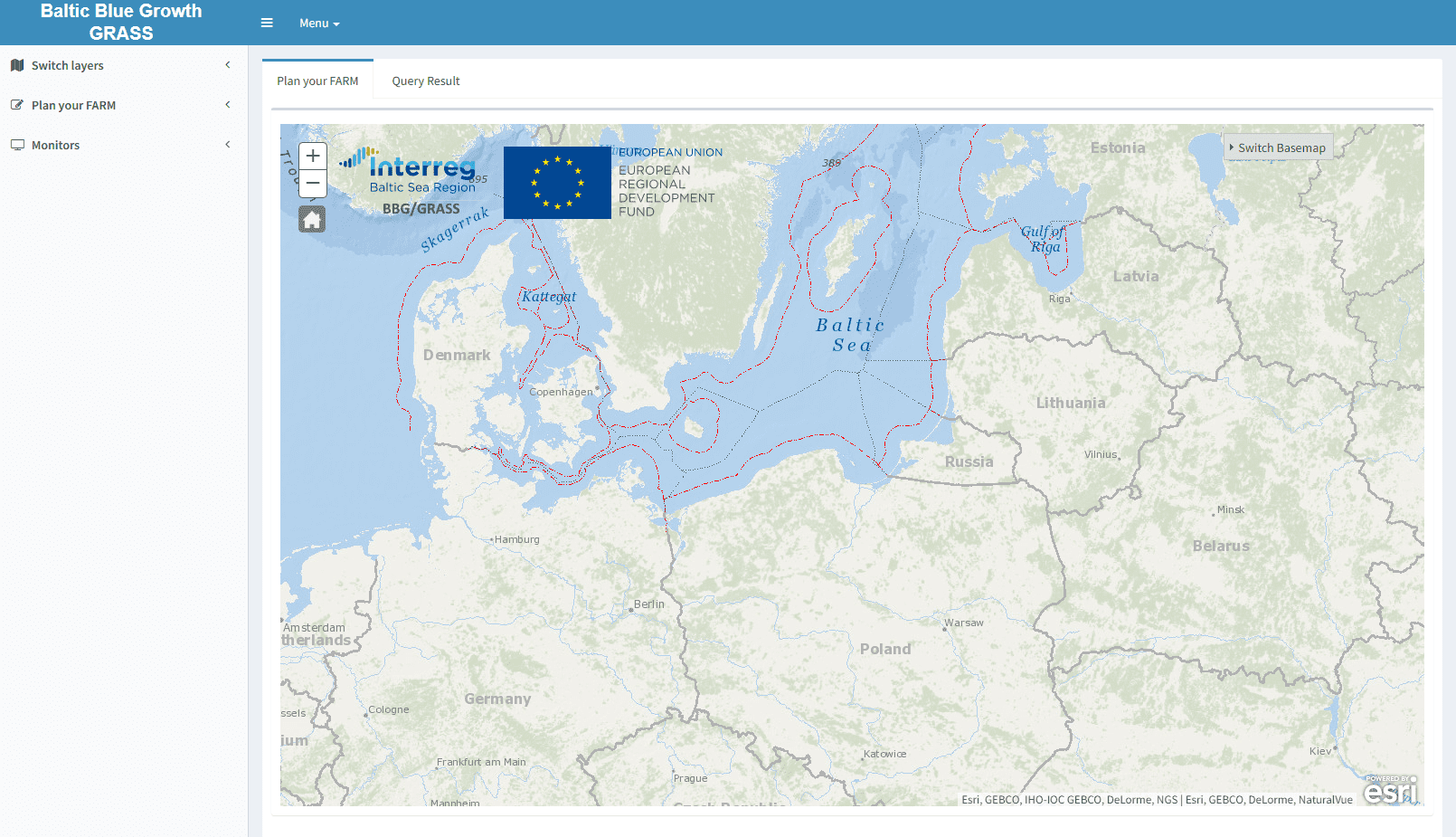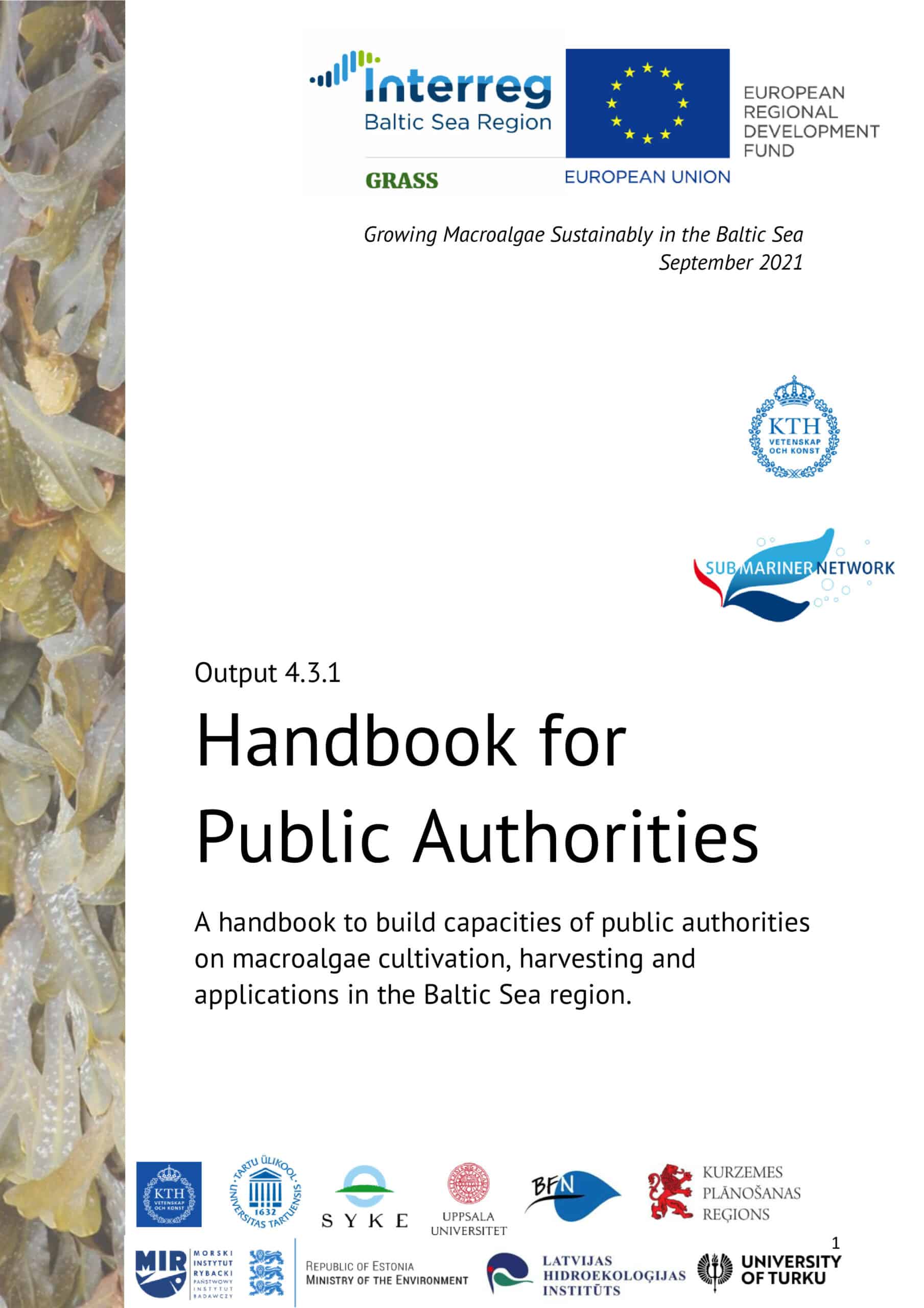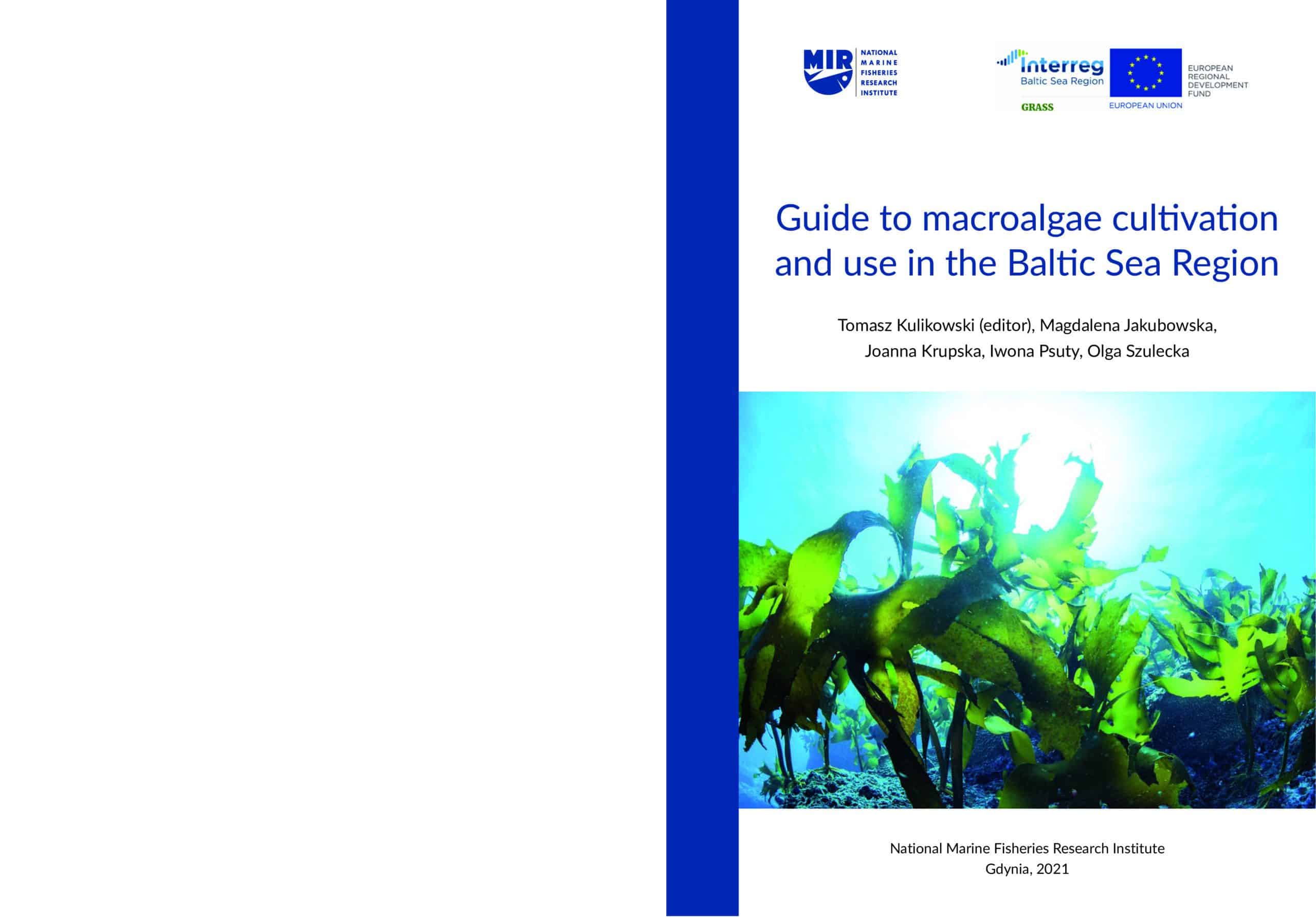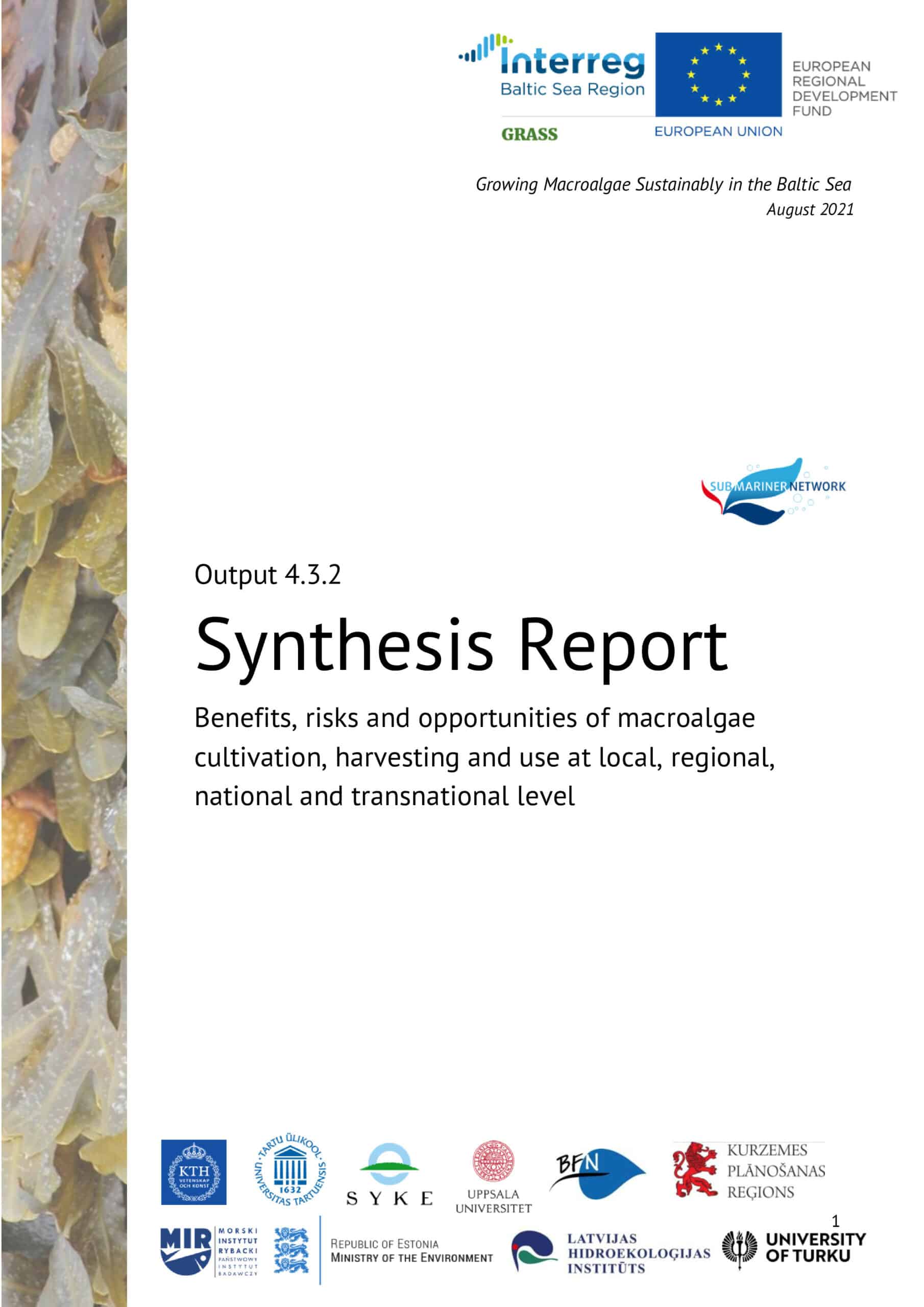GRASS
Growing algae sustainably in the Baltic Sea
Biomass produced from macroalgae could be used as food and consumables, such as plastics and energy. However, growing and harvesting macroalgae was still in its infancy in the Baltic Sea: there was a lack of in-depth and wide-spread knowledge on the potential benefits. Furthermore, there were gaps in legislation and regulations to unlock the potential of sustainable production and use of macroalgae, for example as food. To deal with this challenge, the project GRASS raised the awareness and built capacities on the macroalgae cultivation, harvesting and use among public authorities and other relevant stakeholders across the region.
All you need to know about macroalgae
GRASS collected and analysed environmental data, pointed out to sites where macroalgae could be grown and identified efficient production methods. This comprehensive knowledge compiled by GRASS on the macroalgae cultivation, harvesting and application helped regional and national public authorities, such as environmental and planning agencies, practitioners, research institutes and related NGOs to understand the benefits of macroalgae production and create favourable conditions for it. By this, GRASS helped develop blue bioeconomy and triggered blue growth in the Baltic Sea region.
Budgets
in numbers
-
2.00MillionTotal
-
1.55MillionErdf
-
0.05MillionEni + Russia
-
0.00MillionNorway
Achievements
New knowledge to untap potential of macroalgae cultivation to protect environment and do business
With the help of GRASS, ministries, regional administrations and municipalities learned about socio-economic benefits of macroalgae cultivation, like job creation, reduction of eutrophication in the Baltic Sea. They gained the knowledge about opportunities, such as new products and markets as well as the protection of the environment. The project highlighted that the seaweed provided habitat for small marine species, as well as took carbon from the atmosphere and improved water quality. They also gained the knowledge about risks, like unfriendly legislation and overly strict licensing of cultivation sites, start-up costs, international competition. For example, macroalgae was not mentioned in policy documents such as the Baltic Sea Action Plan updated in 2021. Furthermore, macroalgae cultivation completed with other sectors such as shipping.
Altogether, 18 transnational and regional stakeholder meetings were organised in the participating countries: Sweden, Estonia, Finland, Poland, Latvia, Germany, and Russia. These meetings brought authorities closer to the industry and created a platform to start a dialogue on what needed to be adjusted in terms of policy and regulations.
Based on this exchange and networking, the partners created a macroalgae working group that serves as a platform for stakeholders (policymakers and industry partners) across the region to meet, discuss the latest developments and share experiences also after the end of the project.
New tools to set up macroalgae cultivation sites
The partner in the project, the Estonian Marine Institute of the University of Tartu, pooled together all available data on environmental proxies and macroalgal production to quantify their relationships, as well as to predict macroalgae production at the Baltic Sea scale. They also built a similar model for
macroalgal beach cast (or beach wrack) to predict potential beach cast production at the Baltic Sea scale. The resulting maps are useful for maritime spatial planning as they enable the identification of areas most suitable for macroalgae farming and/or beach-cast harvesting. From the range of suitable sites, areas can then be identified that allow for the long-term cultivation, while considering trade-offs and possible conflicts with existing industries (fishing, shipping routes, etc.). Access to the information is open via the user-friendly Operational Decision Support System (ODSS) web platform
Outputs
The GRASS Operational Decision Support System (ODSS) web platform

Handbook for public authorities on macroalgae cultivation, harvesting and applications

Guide to macroalgae cultivation and use

Synthesis report of benefits, risks, and opportunities of macroalgae cultivation, harvesting, and us

Project Stories
Partners
KTH, Royal Institute of Technology
- TownStockholm
- RegionStockholms län
- CountrySweden
- RepresentativeFredrik Gröndahl
- Phone
- E-Mail
- Web
University of Tartu
- TownTartu
- RegionLõuna-Eesti
- CountryEstonia
- RepresentativeJonne Kotta
- Phone
- E-Mail
- Web
Finnish Environment Institute
- TownHelsinki
- RegionHelsinki-Uusimaa
- CountryFinland
- RepresentativeKristian Spilling
- Phone
- E-Mail
- Web
National Marine Fisheries Research Institute
- TownGdynia
- RegionTrójmiejski
- CountryPoland
- RepresentativeTomasz Kulikowski
- Phone
- E-Mail
- Web
University of Turku
- TownTurku
- RegionVarsinais-Suomi
- CountryFinland
- RepresentativeBaoru Yang
- Phone
- E-Mail
- Web
Latvian Institute of Aquatic Ecology, Agency of Daugavpils University (LIAE)
- TownRiga
- RegionRīga
- CountryLatvia
- RepresentativeIeva Barda
- Phone
- E-Mail
- Web
SUBMARINER Network for Blue Growth EEIG
- TownBerlin
- RegionBerlin
- CountryGermany
- RepresentativeEfthalia Arvaniti
- Phone
- E-Mail
- Web
Republic of Estonia Ministry of the Environment
- TownTallinn
- RegionPõhja-Eesti
- CountryEstonia
- RepresentativeKatarina Oganjan
- Phone
- E-Mail
- Web
Kurzeme Planning Region
- TownSaldus
- RegionKurzeme
- CountryLatvia
- RepresentativeLigita Kokaine
- Phone
- E-Mail
- Web
Uppsala University
- TownVisby
- RegionGotlands län
- CountrySweden
- RepresentativeGunilla Rosenqvist
- Phone
- E-Mail
- Web
Interregional charitable public organization "Biologists for nature conservation"
- TownSt. Petersburg
- RegionCity of St. Petersburg
- Country
- RepresentativeNikolai Kovalchuk
- Phone
- E-Mail
- Web
-
Project managerFredrik GröndahlKTH/ SCHOOL OF ARCHITECTURE AND THE BUILT ENVIRONMENT
-
Legal representativeMaria GustafsonKTH, Royal Institute of Technology
-
Financial managerAnastasia GrossKTH/SCHOOL OF ARCHITECTURE AND THE BUILT ENVIRONMENT
-
Communication managerJoanna Clarksons.Pro – sustainable projects GmbH



